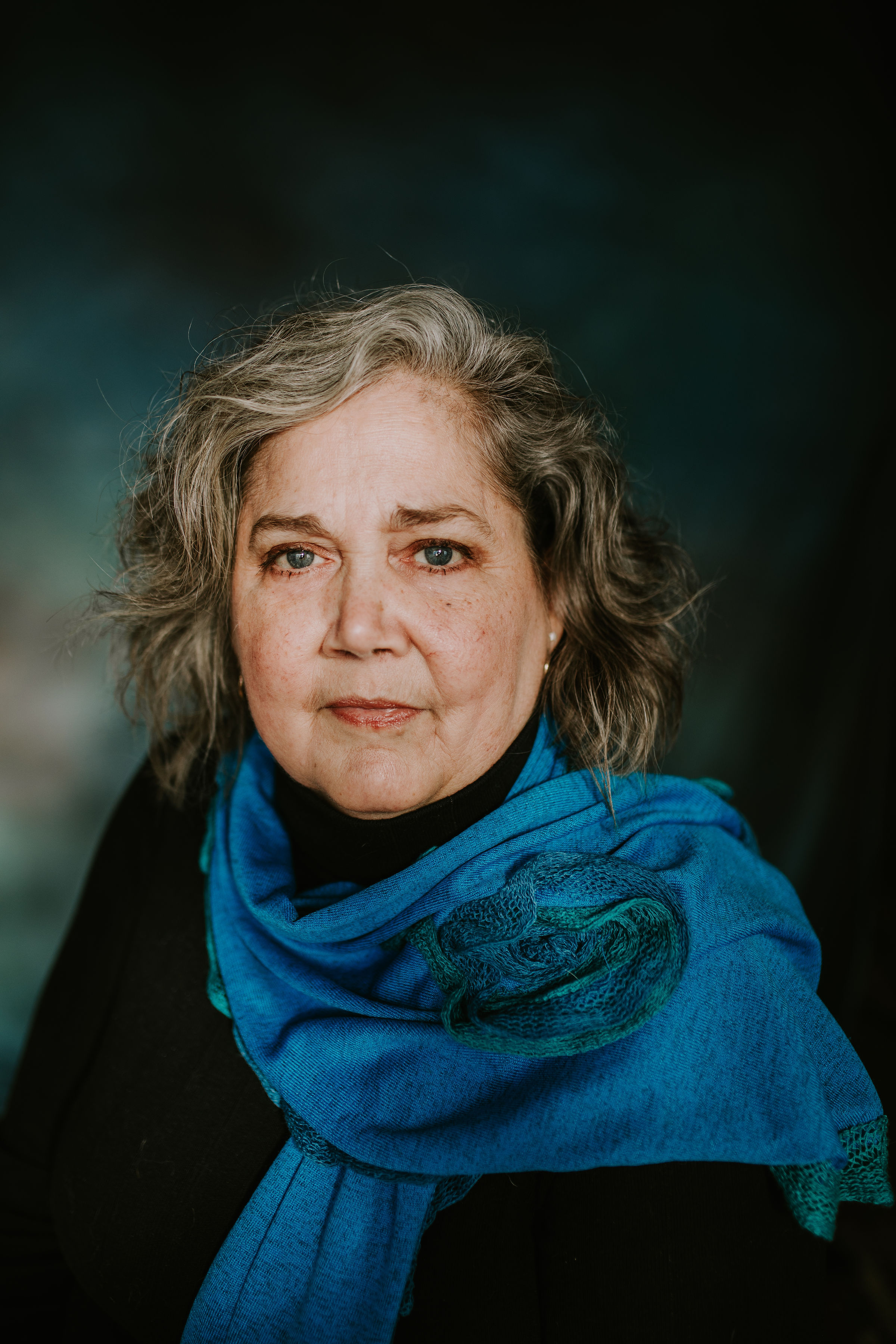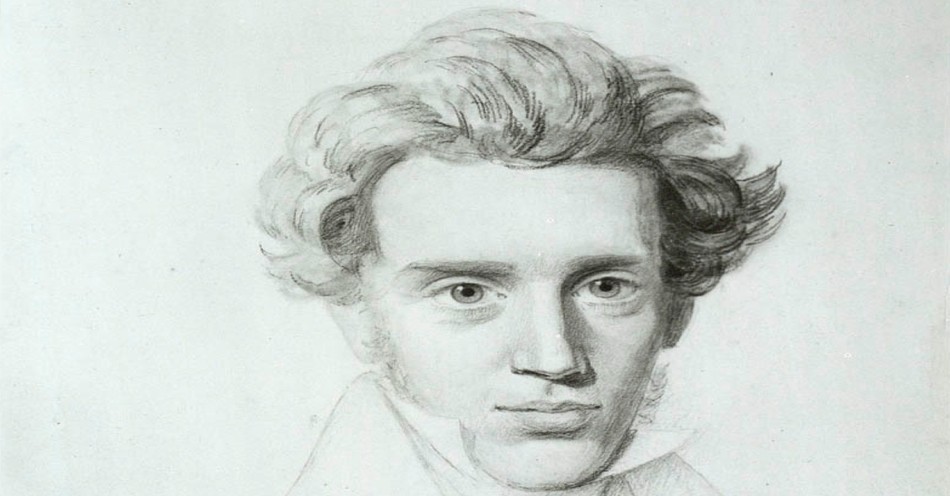It isn’t easy to understand the philosophy and life of Søren Kierkegaard. He was called a Poet Philosopher—an eccentric, deep thinker who used pseudonyms and irony to express his ideas. His writing fostered a way to renew Christianity in his native Denmark. He urged readers to develop their faith as individuals rather than as part of the “Christiandom” of the established Lutheran Church of Denmark.
Søren Kierkegaard’s ideas helped shape the twentieth-century mindset. In America, Kierkegaard spoke to the popular image of the “rugged individual.” Academics recognize him as the “Father of Existentialism,” a secular school of thought that emphasizes individual responsibility in all matters. An avowed Christian, many writings in Kierkegaard’s journals and books center on Christians’ need to find God within their own souls.
10 Important Events in Søren Kierkegaard’s Life
1. Søren Kierkegaard was born in 1813.
2. Kierkeggard’s childhood was marked by his depressed, deeply religious father’s sense of guilt about sins which led him to believe none of his children would live beyond age thirty-three, the length of Jesus’ life on earth. In fact, five of Kierkegaard’s six brothers and sisters died before age 25.
3. Abiding by his father’s wishes, Kierkegaard studied theology at the University of Copenhagen, earning a master’s degree in 1840.
4. After his father’s death, Kierkegaard felt his obligations to his father were fulfilled and opted to become a philosopher rather than a church pastor. A large inheritance allowed Kierkegaard to live the life of a freelance philosopher.
5. The first of about twenty books Kierkegaard wrote was Either–Or, published in 1843. This book is about the primary need in life to make choices in every situation: to act according to one’s individual decision to follow either one’s own pleasures or do the will of God. Kierkegaard writes in Either-Or that our decisions are meaningless unless we are connected to God.
6. A year after Kierkegaard wrote Either-Or, which was partly a love letter to his fiancée Regine Olsen, Kierkegaard broke off their engagement. Regine had grounded him personally and provided the possibility of a conventional future for him.
7. When his engagement ended, Kierkegaard became a social gadfly. He wrote volumes of philosophy at night, wandering the streets by day and talking to strangers.
8. In his 1843 book Fear and Trembling, Kierkegaard expresses that God’s will is not the same as social morality. Following Christ’s example rather than society’s rules may appear to conventional society as foolish, immoral, or outright willful. Kierkegaard uses Abraham’s willingness to sacrifice his son Isaac as an extended example: Abraham is willing to “sacrifice,” versus murder, his son to follow God’s will.
9. Kierkegaard’s 1845 book Thoughts on Crucial Situations in Human Life argues that God is part of the individual self, a subjective force directing a person’s life.
10. In 1855, Kierkegaard collapsed on a Copenhagen street and died in a hospital a month later. Medical authorities believe he died of Pott’s disease, a form of tuberculosis that damages the spine’s bones.
10 Important Quotes by Søren Kierkegaard
1. “Prayer does not change God, but it changes him who prays.”
2. “Life can only be understood backwards; but it must be lived forwards.”
3. “Leap, then, into the arms of God. . . They must make the leap themselves, for God’s love is not a secondhand gift.”
4. “... For the terrible language of the Law is so terrifying because it seems as if it were left to man to hold fast to Christ by his own power, whereas in the language of love it is Christ who holds him fast.”
5. “... To become a Christian is the greatest human suffering. Christ being an absolute explodes all the relativity whereby we humans live.”
6. “Life is not a problem to be solved, but a reality to be experienced.”
7. “The most common form of despair is not being who you are.”
8. “. . . and the great thing, in short, is neither to live in solitude nor amidst the confusion, but the great thing is to overcome the danger.”
9. “While it is only all too true, as Luther says, that every human being has a preacher within him—he eats with him, drinks with him, awakens with him, sleeps with him, in short, is always around him, always with him, wherever he is and whatever he does. . . . so it is also certain that deep within every human being there is a secret-sharer who is present just as scrupulously everywhere—the conscience.”
10. “What a human being knows by himself about love is very superficial; he must come to know the deeper love from God . . . [and become] an instrument for God.”
10 Things You Should Know about Søren Kierkegaard
1. Just as Socrates was known for his “annoying questions,” Kierkegaard provoked other thinking people with his ideas. “He was . . . constantly irritating his contemporaries with discomforting thoughts.” Kierkegaard continually questioned his own thoughts as well.
2. Kierkegaard criticized the traditional Lutheran Church of Denmark’s emphasis on sin and rules, calling it “Christiandom.” Christiandom was not true Christianity, according to Kierkegaard, and he wrote how the state church could be renewed.
3. Kierkegaard viewed scientific knowledge as the greatest obstacle to human redemption and sought to take away what passed for knowledge in his time. He would most likely not approve of the swarms of information on the Internet.
4. Kierkegaard loved his Danish heritage and language, writing with humor and stories, and often using a pseudonym.
5. Kierkegaard’s mentors were Socrates and Jesus. Both lived outside society, were arrested for expressing radical ideas, and suffered death for their beliefs.
6. Kierkegaard believed Christ was the ultimate authority in matters of personal faith, and Kierkegaard also believed in the “absolute transcendence by God of all human categories.” Kierkegaard believed God was the universe’s supreme power.
7. Kierkegaard sought for readers to find their “existential significance” on their own by reading his philosophy.
8. In one book, Kierkegaard predicted television’s brainwashing effect long before it was invented. Kierkegaard also envisioned twentieth-century totalitarianism in world wars.
9. George Leon observes that Kierkegaard’s writings on spiritual themes led to him being claimed by both conservative and liberal Christians in Europe and America.
10. Kierkegaard wrote 7,000 pages in his journals and about twenty books.
Sources
Kierkegaard’s Existentialism by George Leone.
Quotation 1 is from Christianity.com’s “50 Prayer Quotes from Early and Modern Christians,” by Christianity.com Editorial Staff. Quotations 3, 4, and 5 from Christianity.com’s “What Did They Ask Kierkegaard?” by Dan Graves.
Quotation 2 is from Brainy Quote. Quotations 6 and 7 are from AZ Quotes.
The Following quotations are Søren Kierkegaard’s books: Quotation 8 from Thoughts on Crucial Situations in Human Life, (also called Three Discourses on Imagined Occasions). Quotation 9 is from Two Discourses at Friday Communion (also called Love Will Hide a Multitude of Sins). Quotation 10 is from Works of Love.
The quotation below is from a PowerPoint on existentialism:
“O Lord Jesus Christ, would that we also might be contemporary with thee, see thee in thy true form, . . . not in the form in which an empty and meaningless tradition, or a thoughtless and superstitious . . . historical tradition has deformed thee.”—Søren Kierkegaard
Photo Credit: Public Domain sketch by N.C. Kierkegaard/Wikimedia Commons

This article is part of our People of Christianity catalog that features the stories, meaning, and significance of well-known people from the Bible and history. Here are some of the most popular articles for knowing important figures in Christianity:
How Did the Apostle Paul Die?
Who are the Nicolaitans in Revelation?
Who Was Deborah in the Bible?
Who Was Moses in the Bible?
King Solomon's Story in the Bible
Who Was Lot's Wife in the Bible?
Who Was Jezebel in the Bible?
Who Was the Prodigal Son?




